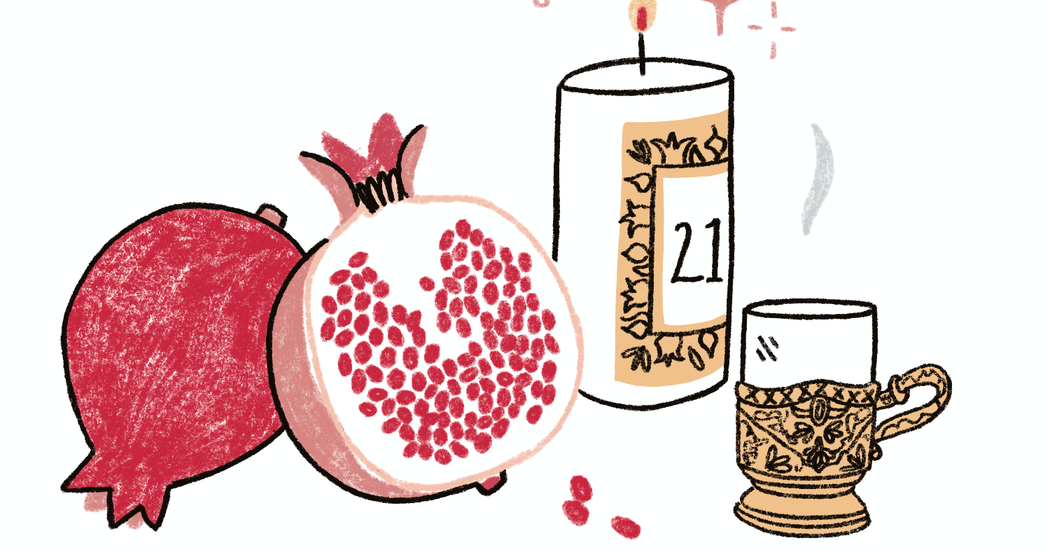When I was in college, every winter break my mom would welcome me home with a Tupperware full of anar, or pomegranates in Farsi. I’d plop generous spoonfuls of the shimmering red seeds into my mouth — tart, fragrant, still deliciously cold from the refrigerator — and imagine my mother as she anticipated my arrival, standing over a cutting board and using both hands to remove the jewel-like arils from the membrane, the deep crimson staining her hands.
Pomegranates are significant in Persian culture and cuisine — the basis of dishes like khoresh-e fesenjoon, a sweet and sour stew, or ash-e anar, a pomegranate soup. Originating in what is now Iran, the fruit is part of the mythology of many ancient cultures; some believe it was the Edenic forbidden fruit. And, as Naz Deravian explores in this story, it is especially significant at this time of year. On Shab-e Yalda, the Iranian celebration of the winter solstice, pomegranates represent light triumphing over darkness and are passed around to welcome brighter days ahead.
People often tell me they avoid buying pomegranates, dismissing them as too time-consuming to prepare, too messy, too difficult — nothing like the instant gratification of opening, say, an orange. But I always find peeling one to be a meditative experience. If you do it the right way (and there are many right ways), the seeds will glide right off the pith. On this longest night of the year, set aside a couple of minutes to prepare this hard-earned fruit, for yourself or a loved one. It will be well worth the effort.
Sumber: www.nytimes.com
